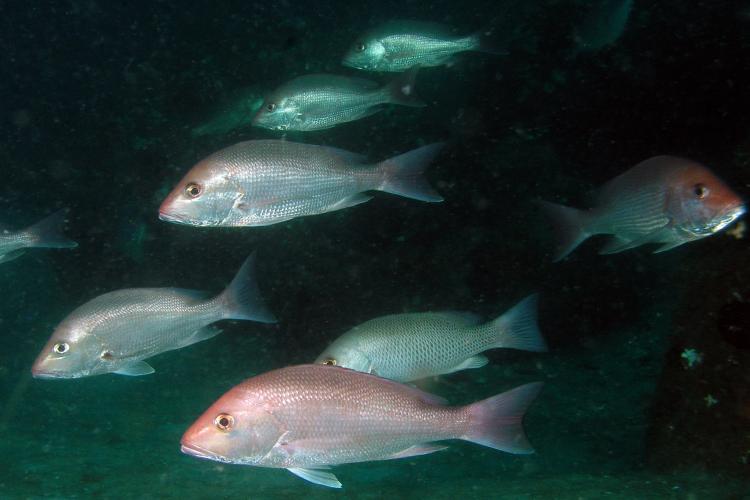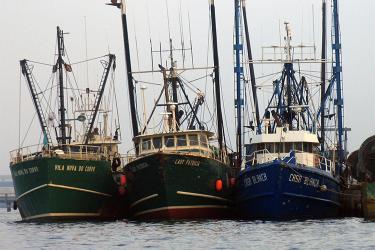Today, the Department of Commerce and NOAA announced plans for $20 million in funding to address the impacts of climate change on red snapper and other reef fish in the Gulf of Mexico, as part of President Biden’s Investing in America agenda. These funds will support the efforts of NOAA and the Gulf of Mexico states to determine the best tools to collect reliable recreational fishing data that support science and management decision-making for red snapper.
The funding is from the Inflation Reduction Act, the largest climate investment in history. It will strengthen NOAA’s efforts to share and exchange standardized state and federal data, harness the power of advanced technology and artificial intelligence to improve timeliness of data collection, and enhance state recreational data management systems for estimating landings, discards and fishing effort.
“Red snapper is one of the Gulf of Mexico’s most iconic species and perhaps one of the region's greatest management success stories,” said U.S. Secretary of Commerce Gina Raimondo. “These funds, made possible by President Biden’s Investing in America agenda, a key pillar of Bidenomics, will improve NOAA’s data collection efforts and management decisions for red snapper and dozens of other species, thereby benefiting millions of anglers.”
Distribution of these funds is underway, with NOAA Fisheries awarding the Gulf States Marine Fisheries Commission nearly $1.5 million through a cooperative agreement to modernize state recreational data management systems. The commission — in coordination with NOAA Fisheries — will work with state and federal partners to ensure common data standards, create and enhance certified state data systems and host workshops to improve data accuracy.
NOAA Fisheries intends to use the funding in the following three areas:
- Develop and implement Gulf of Mexico video and acoustic camera surveys to improve reef fish data timeliness and generation of density estimates ($2 million).
- Collaborate with Gulf States Marine Fisheries Commission and state partners to increase accessibility of state survey data ($7.35 million).
- Improve the estimates of recreational fishing effort and discards, which represent two of the greatest sources of uncertainty in managing and assessing Gulf of Mexico reef fish ($10.65 million).
“We know climate change is impacting many fish species, and these effects are not fully understood,” said Janet Coit, assistant administrator for NOAA Fisheries. “With our partners at the Gulf States Marine Fisheries Commission, we are working to improve state and federal recreational data collection so we can provide even more robust data and metrics to our fishing communities.”
Climate change has a specific impact on life in the ocean, as droughts, floods, rising seas, ocean acidification and warming waters change marine habitats and the behavior patterns of the wildlife in those habitats.
This funding was first announced in June 2023 as part of the historic $3.3 billion in investments focused on ensuring America’s communities and economies are ready for and resilient to climate change.
Please visit NOAA’s Inflation Reduction Act website to learn about current and future funding opportunities.
Media contact
Lauren Gaches, nmfs.pa@noaa.gov, 202-740-8314



